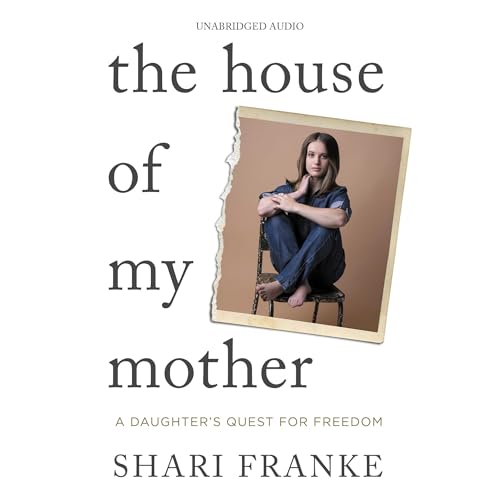Shari Franke – The House of My Mother Audiobook
Shari Franke – The House of My Mother: A Daughter’s Quest for Freedom Audiobook

text
The House of My Mother: A Reflective Exploration of Memory, Home, and Resilience
Shari Franke’s The House of My Mother is not simply a book about a physical space; it is a deeply personal and emotionally resonant exploration of how homes become repositories of memory, identity, and generational stories. In this work, Franke blends memoir-style storytelling with thematic reflections, weaving together family history, cultural heritage, and the changing meaning of “home” over time.
A Journey Through Layers of Place and Identity
At its heart, The House of My Mother chronicles Franke’s connection to her childhood home — a structure that is as much a living archive as it is a shelter. The house represents not only a geographical location but also an emotional anchor. It holds memories of formative experiences, echoes of parental influence, and the quiet yet profound rituals that shaped her worldview.
Franke uses the home as a metaphor for the continuity and fragility of family bonds. As she reflects on her mother’s role, we see the interplay between personal growth and inherited patterns. The narrative flows between intimate vignettes and broader cultural observations, inviting readers to consider how the “architecture” of a family — routines, traditions, and shared spaces — informs identity.
Themes of Loss, Preservation, and Transformation
One of the strongest undercurrents in the book is the tension between preservation and change. Franke navigates the bittersweet emotional terrain that arises when the people who gave a home its meaning begin to fade from it — whether due to aging, death, or shifts in circumstance. These changes transform the house from a living space into a vessel of memory.
Her writing captures the sensory details that make memories vivid: kitchen scents lingering after a family meal, the way light enters a specific window at a certain hour, and the fingerprints of her mother’s handiwork in every corner. Through these details, the book speaks to the desire to hold on to moments, even when time inevitably alters them.
A Universal Story Told Through a Personal Lens
While the book is firmly rooted in Franke’s own experience, it resonates universally for readers who have felt the pull of a place tied to their personal history. The house itself becomes a symbolic stand-in for all the homes we leave yet carry within us — spaces where we learned love, discipline, resilience, and hope.
Franke’s narrative encourages reflection on the role of family spaces in shaping identity, and the ways in which they continue to influence us long after we’ve moved beyond their walls.
Why It Matters
The House of My Mother arrives at a time when many people are reckoning with the loss or transformation of familiar spaces. By inviting readers to connect their own family histories to her story, Franke crafts a form of intimacy that transcends the page. It’s a reminder that homes are more than structures; they are archives of human experience.